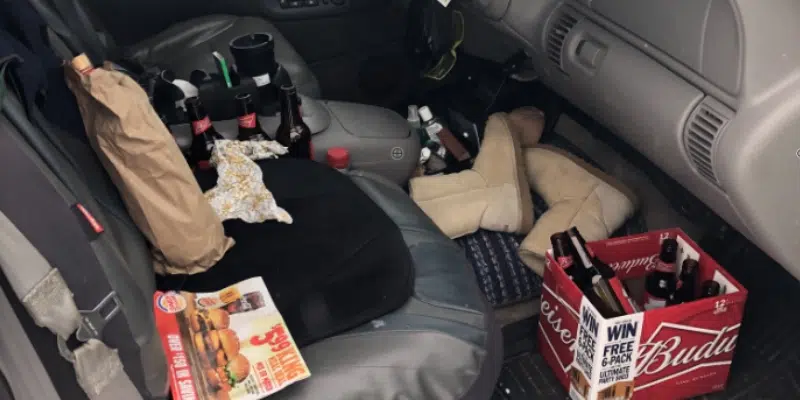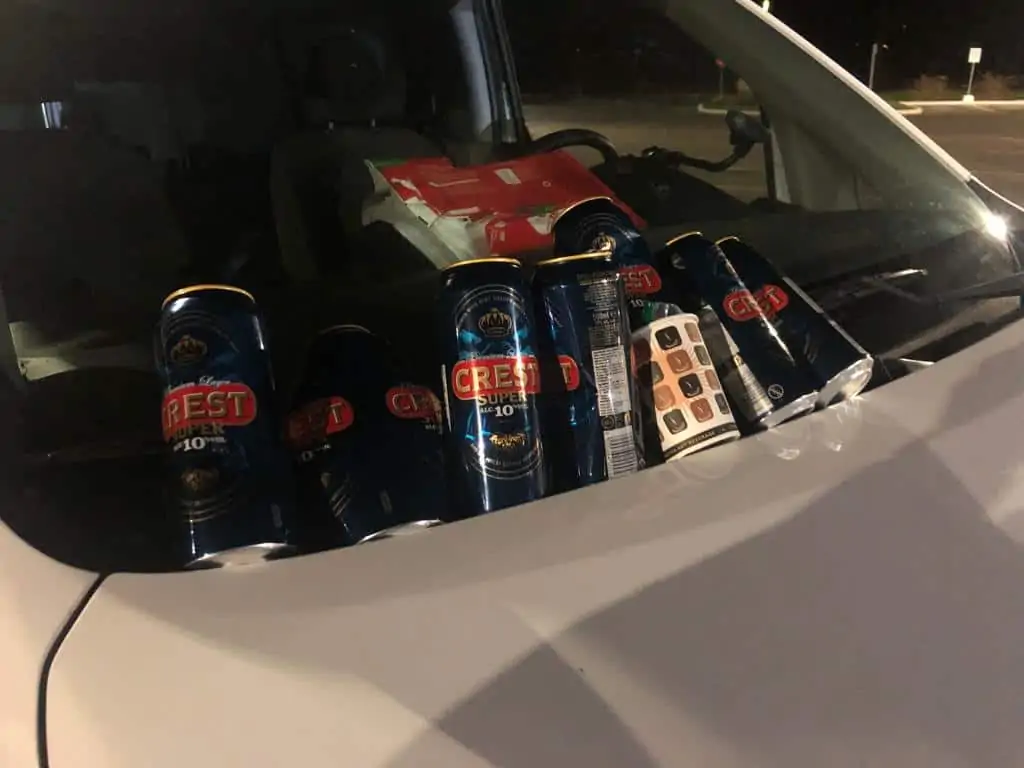There’s nothing quite like enjoying a cold, refreshing beer on a hot summer day. But what about the beer that you forgot in a hot car? How safe is it to drink? The unfortunate truth is that beer can go bad if it’s left in a hot car for too long.
In this blog, we’ll delve into the science behind why and how beer can spoil in a hot atmosphere while providing you with tips on how to prevent this. So, get that chilled glass of beer that you love, and let’s get to it!
Table of Contents
ToggleWhy Beer Goes Bad in a Hot Car
Beer is a delicate beverage that is sensitive to temperature changes. Some of the primary reasons why beer goes bad in a hot car include:
Chemical Reactions
Heat accelerates chemical reactions, and in beer, this can result in the breakdown of complex compounds responsible for flavor and aroma. One major concern is the breakdown of hops, which are known to provide beer with its signature aroma and taste.
UV light from the sun can interact with hops present in beer, which causes a chemical reaction and results in a “skunky” aroma and a flat and unappetizing taste.
Oxidation
Dissolved Oxygen (DO) is present in all beer. The oxidation process in beer is sped up by heat, causing the beer to taste stale, cardboard-like, or even metallic sometimes. Furthermore, the oxygen from the outside can gradually seep into the beer through the cap or seal in hot temperatures, causing it to develop off-flavors.
Microbial Growth
If there are any contaminants or bacteria present in the beer, hot or warm surroundings can encourage their proliferation, leading to off-flavors and potential health risks. This is because of the well-known fact that heat provides an ideal environment for the growth of unwanted microorganisms.
Volatilization
Aromatics and volatile compounds that constitute the beer’s flavor and aroma can evaporate more rapidly at higher temperatures. Though slowly, this can alter the overall sensory experience of the beverage.
How Beer Spoils in a Hot Car

If you live in a hot place, chances are, you have come across bad beer in your hot car now and then. While high-quality beers are more heat resistant than light beers or lagers, it is still advisable to keep your drink cool and out of the sun. So, what are the consequences of the Beer that’s gone bad in hot temperatures?
Skunking
One of the most recognizable consequences of exposing beer to sunlight and heat is the phenomenon known as skunking. This is a result of the interaction that occurs between the ultraviolet (UV) light from the sun and the hops in the beer. Hops are flowers used in brewing to impart bitterness, flavor, and aroma.
When UV light interacts with the hops, it initiates a chemical reaction that produces compounds called isohumulones. The “skunky” aroma that beer can acquire when exposed to sunlight is developed because of these compounds.
Beers stored in clear or green bottles are particularly susceptible to this issue since they allow more light to penetrate compared to brown bottles, which offer better UV protection.
Off-Flavors
As previously established, heat is responsible for accelerating the breakdown of various compounds in beer. As the temperature rises, these compounds can react with each other or other components in the beer, forming new compounds. This can result in off-flavors such as a sour, vinegary, or stale taste. The beer’s delicate balance of flavors can be disrupted, rendering it unappealing and far from the intended taste profile.
Cloudiness and Sedimentation
Beer contains a complex mixture of proteins, polyphenols, and other compounds that contribute to its appearance, texture, and taste. When exposed to high temperatures, these compounds can denature, leading to cloudiness or the formation of sediment in the beer. Cloudy beer can be visually unappealing and might signal that the beer has undergone undesirable changes or has gone bad.
Preventive Measures to Preserve Your Beer
Now that we’ve explored how beer can spoil in a hot car let’s shift our focus to effective preventive measures that can help preserve the integrity of your beer, regardless of how hot the days are:
Shield from Sunlight
To minimize this risk of UV light causing skunking, store your beer in a shaded area of your car. If possible, keep it in the trunk or under a seat, away from direct sunlight exposure.
Utilize Insulation and Cooling
Invest in a high-quality cooler or an insulated bag with ample insulation. Adding ice packs or ice substitutes can help maintain a controlled temperature within the cooler, effectively shielding the beer from external heat. Also, make sure that the cooler is sealed properly to maximize its cooling efficiency.
Opt for Dark Bottles
When selecting beer for your outing, choose those packaged in dark brown bottles. These bottles offer better UV protection than clear or green bottles, helping to aid in avoiding the reaction of skunking. Alternatively, consider canned beer, as cans provide excellent light protection.
Plan and Store Smartly
Calculate the amount of beer you’ll need for your trip and bring only what you intend to consume on that day. This minimizes the exposure time to heat, reducing the risk of spoilage. You should also place the beer inside the cooler or insulated bag immediately after purchase so that it remains cool from the start.
Park Strategically
Choose a shaded spot whenever possible when parking your car. If shade is unavailable, use a windshield sunshade so that the internal temperature of your vehicle is reduced and it’s suitable for the beer. This precaution will help maintain a more favorable environment for your beer.
Maintain Airflow
Leaving windows slightly open can promote airflow and heat dissipation within your car after parking it in a safe spot. This simple step can help prevent the internal temperature from skyrocketing, offering your beer a better chance of staying cool.
Swift Transfer
Upon reaching your destination, make it a priority to transfer your beer to a cooler environment. If you’re at a picnic spot, beach, or campground, find a shaded spot or keep the beer in the cooler until it’s ready to be consumed.
Conclusion
The delicate nature of beer demands an understanding of how factors like heat and oxidation impact its quality. But don’t worry; now you know how to make sure that your beloved brews retain their flavors, aromas, and overall appeal. You only need to pay a little attention and be careful while handling and storing beer. We hope this article has provided you with valuable insight regarding the preservation of the refreshing experience beer offers.

I am a passionate beer connoisseur with a deep appreciation for the art and science of brewing. With years of experience tasting and evaluating various beers, I love to share my opinions and insights with others and I am always eager to engage in lively discussions about my favorite beverage.
















